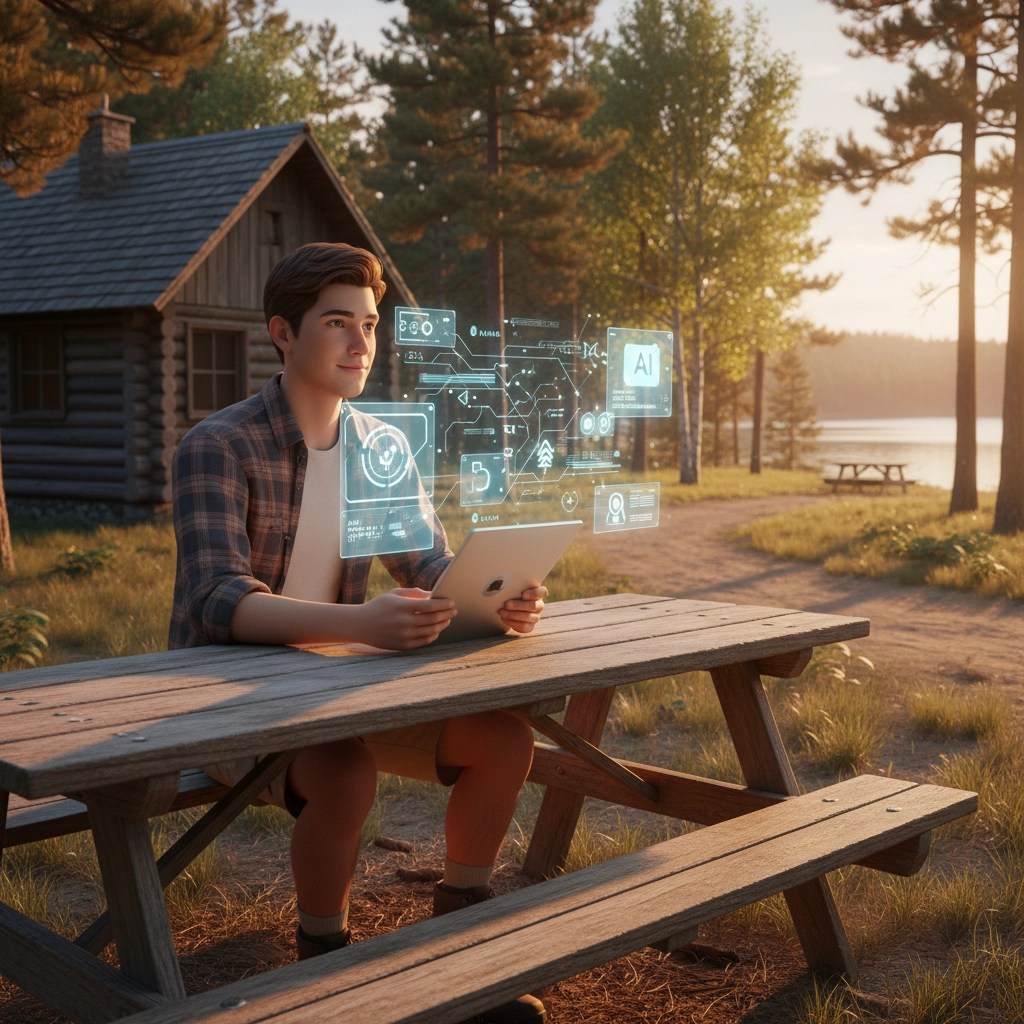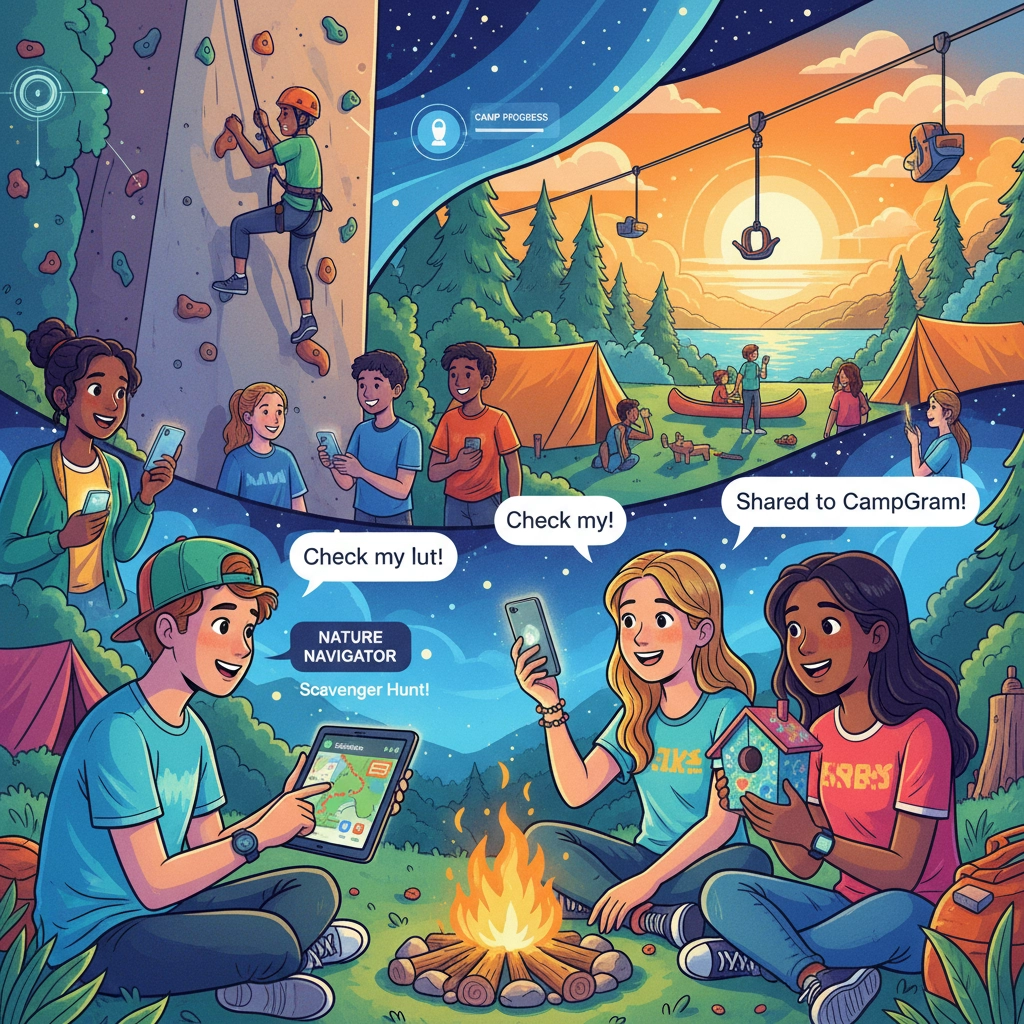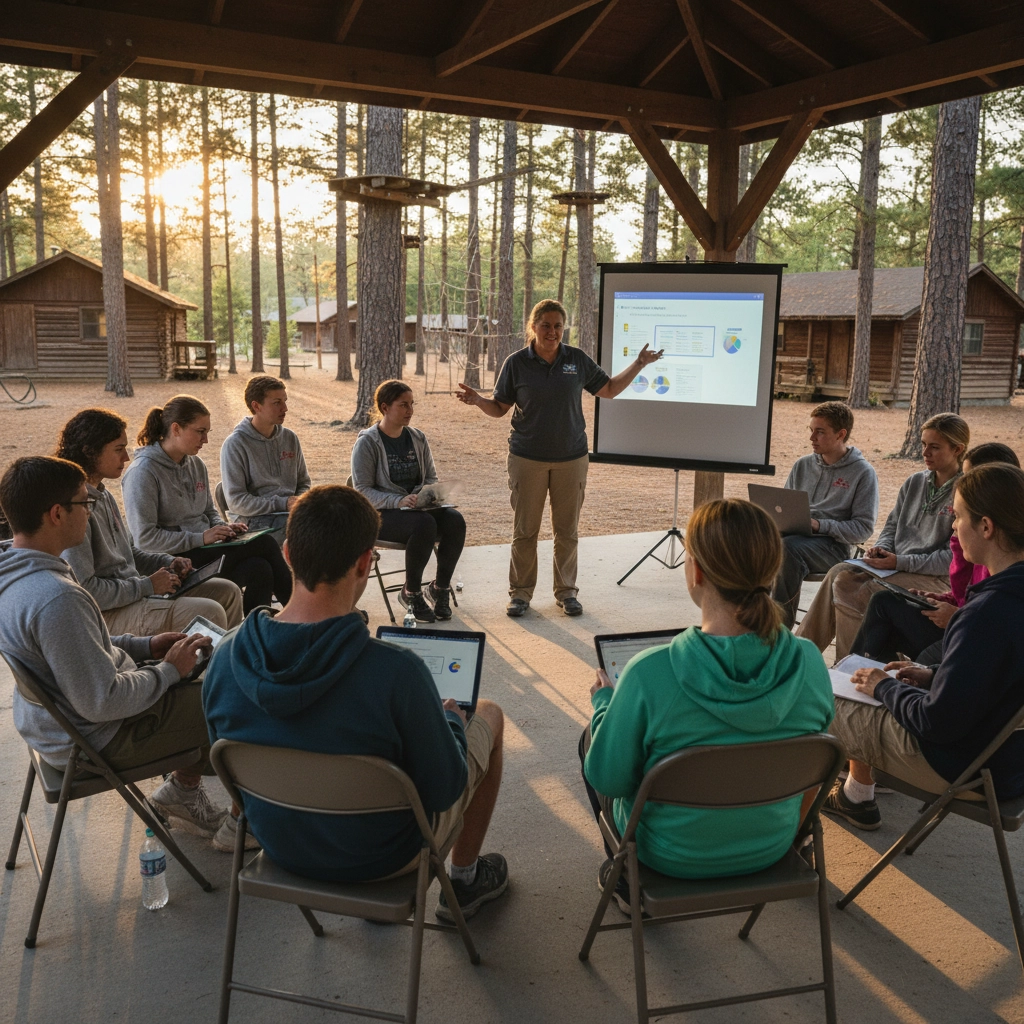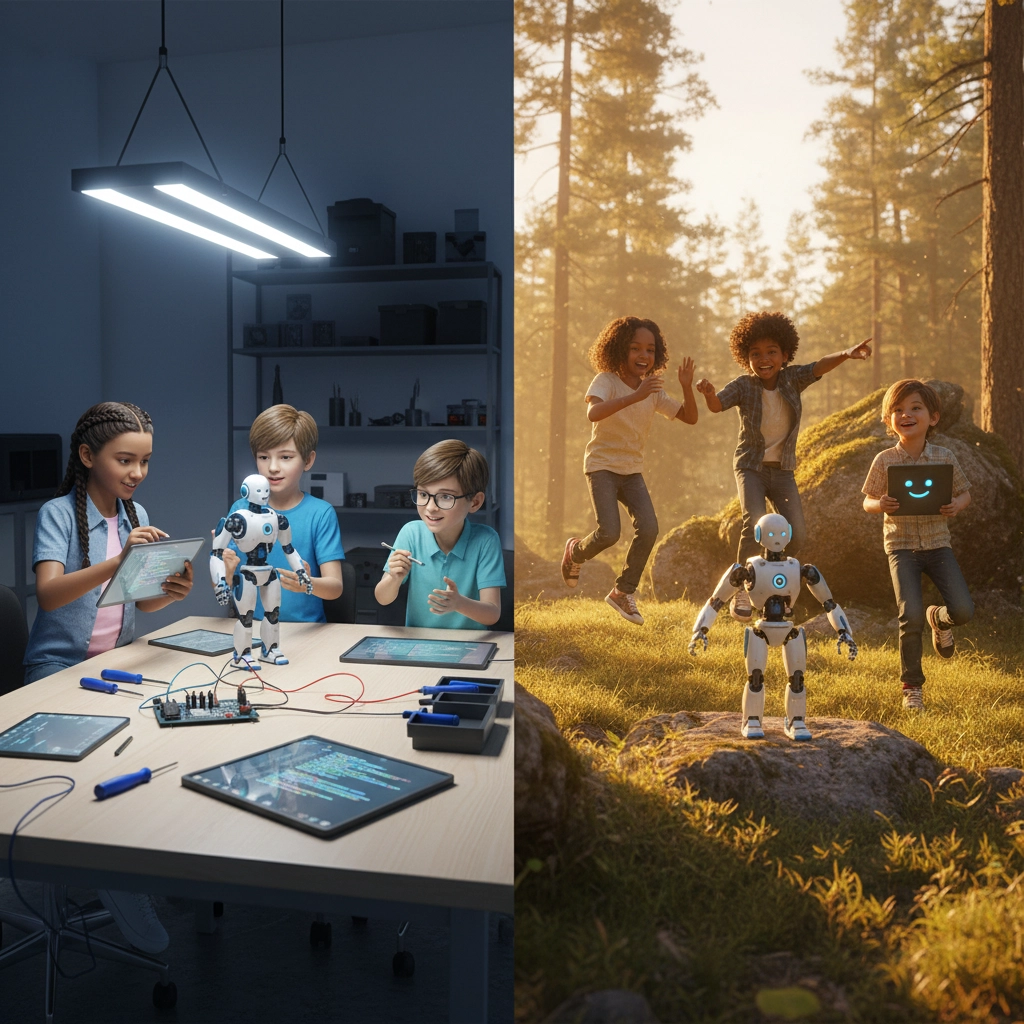The Summer Camp Daily Brief – October 10, 2025
- Matthew Kaufman

- Oct 10
- 5 min read
Happy Friday, camp pros! Today's brief dives deep into the AI wave that's reshaping not just schools, but summer camps too. We're breaking down what you need to know about Generation Z and Alpha expectations, plus actionable strategies to keep your camp ahead of the curve.
1. AI in Education: Promise and Peril : and What That Means for Camps
The numbers are in, and they're pretty staggering. A recent survey from the Center for Democracy & Technology shows that 86% of students and 85% of teachers used AI during the 2024–25 school year. But here's the catch: increased AI deployment in schools correlates with higher risks: data breaches, misuse, bullying, and unexpected AI behaviors.
Meanwhile, while AI tools are becoming baked into teaching platforms everywhere, the downsides are mounting. Teachers face a greater burden to verify student work, and there's growing concern about student over-reliance on these tools. In Delhi, 100 computer science teachers are getting hands-on AI training to begin classroom integration: a trend that's spreading globally.

What this means for your camp:
AI as assistant, not teacher. If you're adopting AI for scheduling, curriculum planning, or feedback tools, guard against outsourcing too much. Just like schools wrestling with "AI with guardrails," you need human checks, transparency about what AI is doing, and clear policies to prevent overdependence.
Data and privacy is non-negotiable. Using apps, wearables, or online tools for attendance, health logs, or camper tracking? This surge in AI-related data risk means encryption, data minimization, parental consent, and robust cybersecurity practices will become differentiators: not just compliance checkboxes.
Staff training is critical. As schools roll out AI teacher training, camps should follow suit. Train your counselors not only in using AI tools but in understanding their limits, evaluating outputs, and teaching AI literacy to campers.
2. Generation Z & Generation Alpha: Digital Natives with Sky-High Expectations
Let's talk about your campers. Gen Z and younger Gen Alpha kids grew up with AI, smart devices, and instant feedback loops. They expect intuitive interfaces, polished experiences, and adaptability. But here's what's interesting: they're also more acutely aware of privacy, data rights, and digital boundaries than previous generations.
Camp implications you can't ignore:
User experience matters: a lot. If your app, web portal, or camper dashboard feels clunky, laggy, or insecure, you'll lose trust fast. These kids will compare your tech to their smartphone-level expectations, and they won't be forgiving.
Transparency and empowerment build trust. Let campers and parents know exactly how things work: how their data is used, when AI assists, when humans are in control. Giving them control through opt-out options and visibility strengthens that crucial trust factor.

Tech and non-tech balance is everything. Gen Alpha is often painted as hyper-connected, but camps that balance tech-enabled experiences with screen-free, nature-based, hands-on modules deliver what these kids actually crave: real connection and novelty.
Peer learning works. Use safe, moderated collaborative platforms to let Gen Z and Alpha teach each other. They often move faster than staff in discovering new tools and approaches.
3. Staff Training: Upskilling for Tomorrow's Camps
Here's the reality: your staff will be asked to do more than lifeguard or run crafts. They'll need to moderate apps, integrate AI-driven tools, and mentor children in digital contexts. The same training pressures affecting schoolteachers apply to camp counselors if your camp leans into tech.
What good training actually looks like:
Foundational digital literacy plus AI literacy. Every staff member should understand how AI works: its strengths and weaknesses: plus basic cybersecurity and privacy principles.
Scenario-based practice. Use role-play exercises like: "A camper tries to get AI to do their assignment; how do you intervene?" or "An AI-based attendance alert flags a child: what's your verification process?"

Continuous and scaffolded learning. Skip the one-off "tech day" training. Build progressive modules, refresher sessions, peer communities of practice, and feedback loops that evolve with your needs.
Ethics through a child development lens. Training must include conversations about screen time, digital boundaries, social-emotional impacts, and child-centered technology approaches.
Mentorship and reverse mentoring. Pair younger "digital native" counselors with experienced staff. This creates a two-way learning system that benefits everyone.
4. Child Development: The Role of Technology in Healthy Growth
The experts are clear: technology must be a tool, not a surrogate teacher or babysitter. Overexposure or misuse can hamper critical thinking, social skills, attention, and executive function. Research in AI literacy suggests that students benefit most when AI is introduced through project-based, scaffolded experiences rather than passive consumption.
How camps can align with healthy development:
Design hybrid experiences. Combine digital modules with physical, unstructured play. Build a robot, then go outside to test it. Use AI-driven design tools, but always embed tactile, social, and creative tasks.
Teach metacognitive skills. Encourage campers to question AI outputs, verify information, and reflect on decisions. This builds resilience, healthy skepticism, and information literacy.

Offer "tech detox" periods. Blocks of camp without devices help reset focus and provide balance. Your tech-forward campers will actually appreciate the contrast more than you might think.
Use technology to support SEL, not replace it. Try an AI reflection journal that prompts campers about emotions, then have staff debrief with them face-to-face.
Individual pacing matters. AI tools can help when campers learn at different speeds. Use adaptive modules (within reason) so no child gets left behind or held back.
5. Big Picture: 3 Strategic Moves for Camp Leaders
Ready to take action? Here are three concrete moves you can make:
Audit your tech stack through an "AI readiness lens." Assess which systems already use AI or could benefit from it. Take inventory of data flows, interfaces, staff comfort levels, and risk points. Then plan incremental upgrades, not wholesale replacement.
Launch an AI literacy pilot with campers. Start small with one age group and one module: maybe prompt design or bias detection. Monitor outcomes, collect feedback, iterate. Use these results to expand thoughtfully.
Invest in staff as lifelong learners. Develop a "camp tech academy" or internal certification for your staff. Encourage cross-level teaching, peer review, and continuous practice. Build a culture where tech competence is part of camp excellence.
The Bottom Line
The world of AI and digital natives isn't just a school concern anymore: it's fully entering the summer camp space. Camps that embrace this future carefully, ethically, and with strong human oversight will differentiate themselves as leaders in youth development.
The key? Don't rush into tech for tech's sake. Focus on enhancing the human connections and transformative experiences that make camp special in the first place.
Want to stay ahead of these trends? Follow @mattlovescamp on Instagram for daily insights and join our community of camp professionals at www.ilove.camp where we're building the future of youth development together.
What's your biggest challenge with integrating technology at camp? Hit reply and let us know: we love hearing from fellow camp pros who are navigating these exciting changes.



Comments